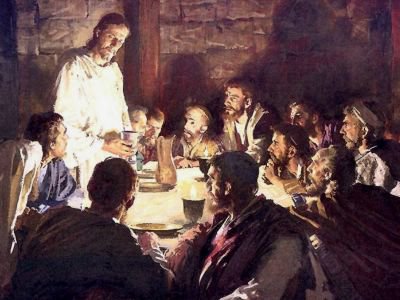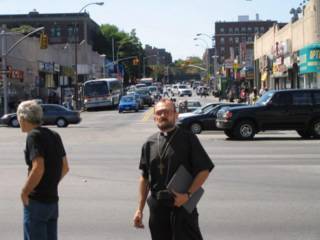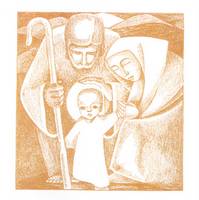Catholics to Relent Towards Orthodox on Transsubstantiative Moments in Time!

Saints Augustine, Irenaeus, Ambrose, etc. versus Cyril of Jerusalem and John Chrysostom, etc. all differed on this point -- which should soon become a moot one, PRAISE GOD!. Now finally!!! (since the 1439 Council of Florence which first took up this contentious theological issue), in the official translation released Sunday but published TODAY in one of their synodial Eucharistic propositions, the Roman Catholic Church Synod of Bishops now proposes the most likely inclusion of an EXPLICIT descending epiklesis into their New Rite Roman Liturgy which reportedly has the blessing of the Roman Pontiff:
Proposition 22 -- Epiclesis:....As you may be aware, one of the main points of contention between the Orthodox and Catholic communions has always been the "descending epiklesis." The Easterners pray an EXPLICIT one and historically claim that the Westerners do not. (That is the theoretical point where the Holy Spirit is called upon by the priest and descends upon the Consecrated Elements.) Romans countered that the epiklesis is a dramatically postponed expression of what happened at the prior moment. The Roman argument has always been that the epiklesis does not pertain to the essence of The Blessed Sacrament, but in some way to its accidental integrity (incidental quality: taste, color, shape, etc.). In another defense of our WR position, consider that there is no hint of a Descending Epiklesis at the Last Supper. Rather, all Christians know what our Lord did then -- and how He instructed us to do the very same thing in like manner (Matt. 26:26-28; John 6:30-58; 1 Cor. 10:16; 11:23-31.)
Given that the "lex orandi" expresses the "lex credendi," it is essential to live and deepen faith in the Eucharist with prayer, with which The Church has always celebrated it, namely, the Eucharistic Prayer.
In particular, Eucharistic spirituality is strengthened by recognizing the importance of The Holy Spirit, who transforms the wafers, and makes the entire community become increasingly the body of Christ. The Synod hopes that the link between the Epiclesis and the account of The Institution will be shown with greater clarity. In this way, it would be more evident that the whole life of the faithful is, in the Holy Spirit and in the sacrifice of Christ, a spiritual offering pleasing to the Father.
In this framework, the Synod notes the need to specify better the different character of the causality that is given in the formula: "The Church makes The Eucharist and The Eucharist makes The Church."
The ER invokes this "perfected completion" after their Consecration: Descending Epiklesis -- "(Priest or Bishop) We offer to Thee this reasonable and unbloody sacrifice; and we beg Thee, we ask Thee, we pray Thee that Thou, sending down Thy Holy Spirit on us and on these present gifts" (the Deacon says: "Bless, Master, the holy bread") "make this bread into the Precious Body of Thy Christ" (Deacon: "Amen. Bless, Master, the holy chalice"): "and that which is in this chalice, the Precious Blood of Thy Christ" (Deacon: "Amen. Bless, Master, both"), "changing [metabalon] them by Thy Holy Spirit" (Deacon: "Amen, Amen, Amen.").
The Western Rite maintains that we traditionalists have always had one (also found in our "Quam oblationem" and the "Supplice te rogamus" -- besides that cited below) however it does not seem explicit enough to the Easterners within our Roman canon of the Holy Mass. Here is where it is found in our Traditional Mass (Gregorian and/or Tridentine Rites and Gallican Liturgy, etc.):
The Anamnesis -- "Remembering therefore His Passion..." -- in which occur the words: "Thou, the God Who lackest nothing, being pleased with them (the Offerings) for the honor of Thy Christ, and sending down Thy Holy Spirit on this Sacrifice, the witness of the Passion of The Lord Jesus, to manifest (opos apophene) this Bread as the Body of Thy Christ and this Chalice as the Blood of Thy Christ..."
The Orthodox teach that their particular invocation or descending epiklesis completes and perfects the Consecration and is the actual moment and exact instant of Transubstantiation (which they signify by another term which I can't recall.) To them, the Words of Institution are "only a narrative." Those Anglicans and Lutherans who believe in the Real Presence call it "consubstantiation".
As you may also be aware, the Traditional Old Roman Catholic Church had inserted the Orthodox descending epiklesis into our canon ever since Abp. Mathew established intercommunion the Orthodox Church in 1911. That's also when the use or omission of the filioque ("and the Son" - John 15:26) became an OPTIONAL compromise for priests of the Ultrajectine Tradition. (Unlike the New Riters, we ORC traditionalists also maintain the epiklesis for the water of Baptism.) The Orthodox Church also uses an epiklesis to bless wine, oil, milk, etc. In all these cases, including that of the Holy Eucharist, the idea of invoking the Holy Ghost to sanctify is a natural one derived from Scripture (Joel 2:32; Acts 2:21; Romans 10:12 and 1 Cor. 1:2.)
Pope Benedict XVI and his Ultramontane Synod of Bishops is also considering other propositions regarding their Novus Ordo Eucharistic celebrations which will bring it into fuller accordance with reverence and tradition (Propositions 21-25 ).
This placation of Eastern sensibilities brings us one step closer to "full diplomatic relations" with them... But will they now become more civil to each other? I doubt it as long as Moscow malingers with their hostile feud towards the Vatican.






























































